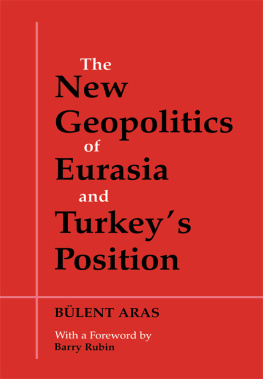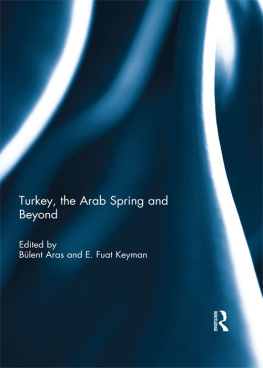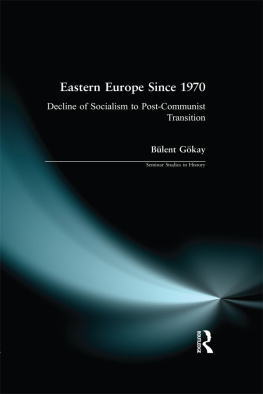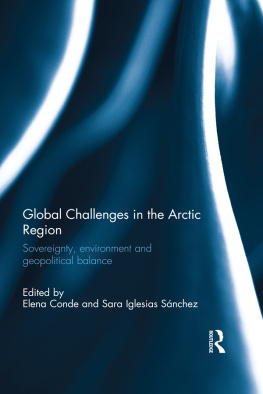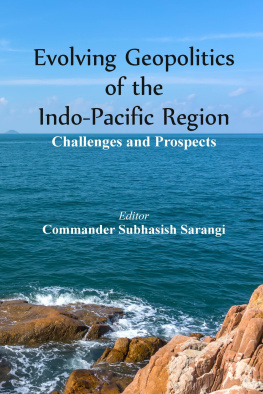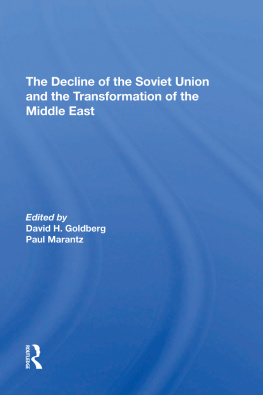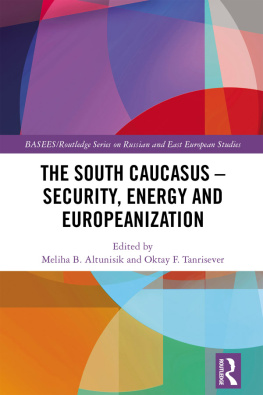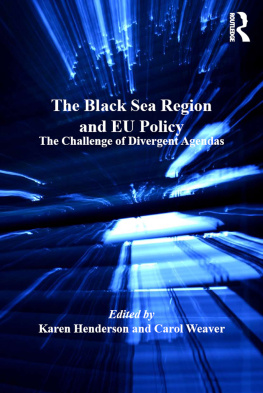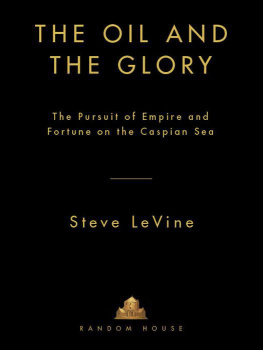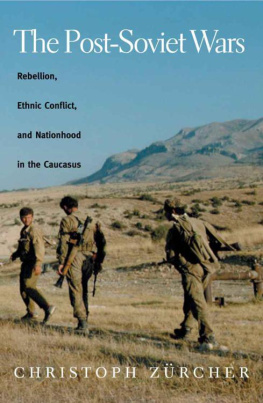THE NEW GEOPOLITICS
of
EURASIA
and
TURKEY'S POSITION
To my parents,
Gaffer Aras
and
Sevgili Aras
THE NEW GEOPOLITICS
of
EURASIA
and
TURKEY'S POSITION
BLENT ARAS
With a Foreword by Barry Rubin
First published in 2002 in Great Britain by
Routledge
2 Park Square, Milton Park, Abingdon, Oxon, OX14 4RN
711 Third Avenue, New York, NY 10017
Transferred to Digital Printing 2011
Website: www.routledge.com
Copyright 2002 Blent Aras
British Library Cataloguing in Publication Data
Aras, Blent
The new geopolitics of Eurasia and Turkey's position
1. Geopolitics Eurasia 2. Geopolitics Turkey 3. Eurasia Foreign relations 4. Turkey Foreign relations 1980 I. Title
327.1095
ISBN 0-7146-5075-7 (cloth)
ISBN 0-7146-8122-9 (paper)
Library of Congress Cataloging-in-Publication Data
Aras Blent
The new geopolitics of Eurasia and Turkey's position / Blent Aras; with a foreword by Barry Rubin.
p. cm.
Includes bibliographical references and index.
ISBN 0-7146-5075-7 (cloth) ISBN 0-7146-8122-9 (pbk.)
1. Caspian Sea Region Foreign relations Turkey. 2. Turkey Foreign relations Caspian Sea Region. 3. Asia, Central Foreign relations Turkey. 4. Turkey Foreign relations Asia, Central. 5. Geopolitics Caspian Sea Region. 6. Geopolitics Asia, Central. I. Title.
DK509 .A69 2002
327.56104750949 dc21
2002071595
All rights reserved. No part of this publication may be reproduced, stored in or introduced into a retrieval system, or transmitted, in any form or by any means, electronic, mechanical, photocopying, recording or otherwise, without the prior written permission of the publisher of this book.
Typeset in in 10.25/12pt Times New Roman
Publisher's Note
The publisher has gone to great lengths to ensure the quality of this reprint but points out that some imperfections in the original may be apparent.
LIST OF TABLES
1996 and 1997 Fiscal Years (FY) Aid Program ($ million)
US Annual Trade with the Central Asian Republics ($1,000,000)
TACIS Fund: 199194 (million ECUs)
TACIS Budget: 199193 (million ECUs)
Shares of European Countries in the Foreign Trade of Kazakhstan in 1998 ($ m)
Azerbaijan's Foreign Trade with Certain EU Member States ($ 1,000)
Shares of European Countries in the Foreign Trade of Azerbaijan in 1994 ($ 1,000)
Shares of Certain EU Members in the Foreign Trade of Kirgyzstan in 1994 (%)
Shares of Certain EU Member States in the Foreign Trade of Uzbekistan ($ 1,000)
Shares of Turkmenistan's Trade with European Countries out of its Total Foreign Trade in 1994 (%)
Turkmenistan's Foreign Trade with Some Member States of the EU ($ 1,000)
FOREWORD
A new region has entered onto the international scene. This area does have a historical identity and a set of issues that bind it together. Yet what should this area be called and how does it relate to neighboring regions? The difficulty in answering these two questions indicates the volatility of a land mass still in search of a role and cohesion.
For example, one might label this place the former southern republics of the Soviet Union, but this refers to a situation that no longer exists and might be viewed as a 75-year detour from their normal existence and long-term destiny. The term Eurasian, too, stresses that this region can go in more than one direction. In an equal sense, it is the northern edge of the Middle East, too. Or one can divide this area into two by calling it the Caucasus and Central Asia. Yet the latter designation equally begs the question. What, after all, does Central Asia mean? Certainly, those particular states and societies do not relate mainly to China, Japan or India.
Moreover, this cannot be called a Muslim region since that excludes Armenia and Georgia, nor a Turkic one, since that excludes those two specific countries plus Tajikistan as well. Indeed, despite aspects of Muslim and Turkic identity, these countries are trying to build nation-states based on an ethnic character that in most cases goes back for many centuries.
Of course, these semantic issues indicate some of the area's key features. It stands between more than one region and continent, a choice involving both options and temptations. Further, the coming together of so many ethnic and religious mixtues remembering also that each of these countries also has large minority groups is the source of real or potential political problems. In addition, while ethnic groups are old, the states are new. National identities must be constructed or rebuilt in an effort to find a way to establish stable countries.
As if these internal pressures were not enough, the area has become an important front for competition by several great powers, inspired by both strategic rivalry and a desire to participate in exploiting the region's new-found oil and gas reserves.
On one hand, there is the purely economic level, in which Turkey, Russia and Iran vie for petroleum supplies and profits. This involves questions over the ownership of oil and gas fields which is tied up with mineral rights in the Caspian Sea, too and pipeline routes. Some observers, however, question the whole basis of this argument, noting that reserves may be overestimated while production and transport arrangements will be difficult and costly.
On the other hand, these same three states are to a certain extent competing though cooperation is also possible for some sphere of influence over this region. Outside powers, most obviously the United States, have joined in. In the American case, the opposition to any strengthening of Iran has also become a factor.
Turkey has on its side an ethnic appeal to many of these states, as well as furnishing them with a model for development. Russia, the former ruler, has greatly influenced the current nature of these places and may appeal as savior or bully as a factor for the survival or accession of particular regimes. Iran has the Islam card, and is also able to sponsor political and social movements.
In particular, Turkey perceived the Soviet Union's dissolution and sudden appearance of these new states as a source of potential opportunity as well as risk. Ankara presented itself as a secular role model for the republics in their struggle too jettison the Soviet legacy and fully integrate themselves into the world order. As a result, Turkey sought to develop a sphere of influence abroad for the first time in its republican history.
The timing of these events was fortuitious in both strategic and economic terms. Turkey needed to rethink its foreign policy after the Cold War to avoid losing its strategic importance to the West, especially the United States. Turkey also hoped to find guaranteed access to vital energy resources, lucrative oil and gas transport revenues and new markets for Turkish goods, especially in Azerbaijan, Turkmenistan and Kazakhstan. It has been estimated that Turkey will have to import roughly 55 million tons of oil annually by the year 2010 to maintain the present course of its economic development.
What exists, then, is a range of domestic and international factors that make instability possible, but by no means inevitable, in this area.
Blent Aras's work is an excellent guide through this area's intricacies and still-coalescing forces. He examines these countries as entities in their own right and not just as future popeline routes or oilfields with borders. Dr Aras has a long and detailed familiarity with these countries, which he has frequently visited and several of whose languages he speaks.

